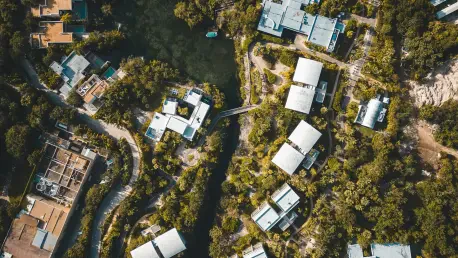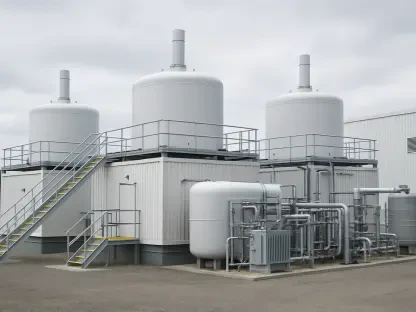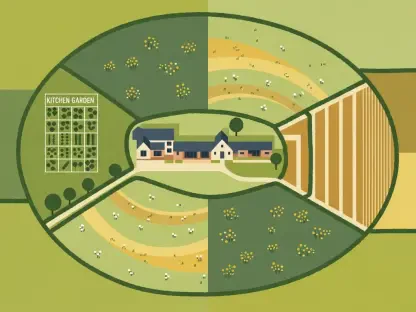Florida’s real estate market has been on an impressive upswing, showcasing significant demand for land across various regions, including Charlotte, Collier, Hillsborough, Lee, Manatee, Pasco, Pinellas, Polk, and Sarasota counties. This burgeoning interest is primarily driven by strategic acquisitions of vacant land, with keen investors eyeing development and investment opportunities. The high-value transactions underscore this trend; for example, TPG AG EHC III (LEN) Multi State 1 LLC’s purchase of vacant land in Pasco for $29,491,900 illustrates this growing appetite. Similarly, Lee County’s acquisition of vacant land for $7,900,000 further signals a strong belief in the long-term value and potential of such investments. These purchases highlight the prevailing mindset among investors that land remains a valuable asset, opening doors for future development and meeting the shifting demands of an ever-growing population.
Moreover, a notable pattern within these transactions is the consistent acquisition of properties ripe for redevelopment or repurposing. The purchase of a hospital site in Charlotte for $44,829,100 by AdventHealth Port Charlotte Inc. stands as a testament to such strategic planning. These deals are more than mere financial investments; they are future-building initiatives that aim to enhance service delivery and efficiency. In addition, the acquisition of tourist attraction properties on Marco Island points toward leveraging the land’s potential to bolster the state’s vibrant tourism industry. When taken together, these purchases paint a picture of an industry not just focused on the present moment but on fortifying its infrastructure for years to come.
Strong Interest in Vacant Lands and Strategic Investments
Vacant land acquisitions present a critical facet of Florida’s real estate boom, signifying robust interest from investors eager to capitalize on development potentials. The sizable scale of these transactions reflects confidence in the state’s economic growth trajectory and anticipation of increased demand for residential, commercial, and recreational spaces. For instance, the Pasco County land deal spearheaded by TPG AG EHC III (LEN) Multi State 1 LLC epitomizes such investment eagerness, expressing a commitment to future community and commercial projects. This particular investment illustrates a broader trend where developers and investors are keen to tap into untapped markets and create modern spaces that cater to evolving consumer preferences and market dynamics.
Similarly, Lee County’s substantial purchase of vacant land reinforces this strategic focus on long-term development goals. Property developers and local government entities recognize the intrinsic value of land as a finite resource, which not only supports population growth but also affords opportunities for technological, recreational, and commercial advancements. Such acquisitions are often accompanied by meticulous planning processes aimed at creating sustainable and environmentally conscious developments. In this climate, investors increasingly factor in elements like proximity to transport links, potential zoning changes, and demographic shifts to maximize their returns while contributing positively to the community landscape. This strategic approach is poised to continue shaping Florida’s urban and rural development narratives.
Redevelopment and Repurposing Trends
There is a pronounced trend in Florida’s real estate market towards acquiring properties with potential for redevelopment or repurposing, which resonates well with investors seeking to maximize returns on investment. The strategy employed by AdventHealth Port Charlotte Inc. in purchasing a hospital site for $44,829,100 is emblematic of this trend. This acquisition, representing more than just financial intent, marks a strategic maneuver to enhance healthcare service delivery and infrastructure to meet future needs. Similarly, transforming tourist attraction locations like those on Marco Island dovetails with efforts to augment the state’s tourism economy, a substantial pillar of Florida’s financial ecosystem.
These property acquisitions mirror a larger narrative within the state, indicating a shift towards multi-functional real estate projects capable of addressing diverse societal and economic demands. Furthermore, such investments rejuvenate existing properties, making them more relevant and beneficial in current market conditions. By aligning with broader community goals, these redevelopments foster increased employment, attract new residents, and support local economic activities. Real estate stakeholders actively contributing to this trend leverage existing architectures while synergizing them with contemporary resource management techniques and eco-friendly technologies, significantly increasing their valuation and utility.
Agricultural Land and Diverse Property Demand
The role of agricultural land in the current real estate boom cannot be understated, with transactions in Charlotte and Manatee counties illustrating its relevance. The ongoing demand for agricultural property is driven by its versatility, offering investors a blend of traditional farming use, potential residential developments, and other land uses. In an era where sustainable farming and localized food production is growing, such purchases become intrinsic to regional planners and developers seeking environmental balance alongside economic growth. These agricultural lands, far from being mere extensions of farmland, serve dual purposes of food production and developmental land reserves, establishing them as keystones in Florida’s real estate mosaic.
The interest in agricultural properties also highlights the investors’ recognition of the value in diversification of property types. Multifunctional land purchase strategies address contemporary challenges through a blend of innovation and tradition, ultimately presenting an attractive option for investors and local governments alike. This approach caters to rising consumer preferences for sustainability and ecological consciousness, simultaneously accommodating urban expansion needs. By effectively maintaining this balance, Florida’s real estate market is setting a precedent, showcasing how diverse land acquisitions can be wisely utilized to nurture both economic prosperity and community enrichment. The state’s real estate trajectory is not just about ownership but about stewardship of its rich land resources.
Outlook on Florida’s Real Estate Landscape
Florida’s real estate market is experiencing impressive growth, with rising demand for land in regions like Charlotte, Collier, Hillsborough, Lee, Manatee, Pasco, Pinellas, Polk, and Sarasota counties. This demand is fueled by strategic acquisitions of vacant land, as investors seek lucrative development and investment opportunities. High-value transactions highlight this trend; for instance, TPG AG EHC III (LEN) Multi State 1 LLC bought land in Pasco for $29,491,900, showcasing investment appetite. Lee County similarly acquired land for $7,900,000, indicating confidence in long-term value. These moves underscore the belief that land remains a valuable asset, presenting opportunities to meet the growing population’s needs through development.
A notable trend is buying properties fit for redevelopment or repurposing. AdventHealth Port Charlotte Inc.’s $44,829,100 purchase of a hospital site in Charlotte exemplifies such planning. These acquisitions aren’t just investments; they aim to enhance service delivery and efficiency. Additionally, acquiring tourist sites on Marco Island hints at tapping into tourism potential. Collectively, these deals emphasize industry focus not only on current gains but also on strengthening infrastructure for the future.









